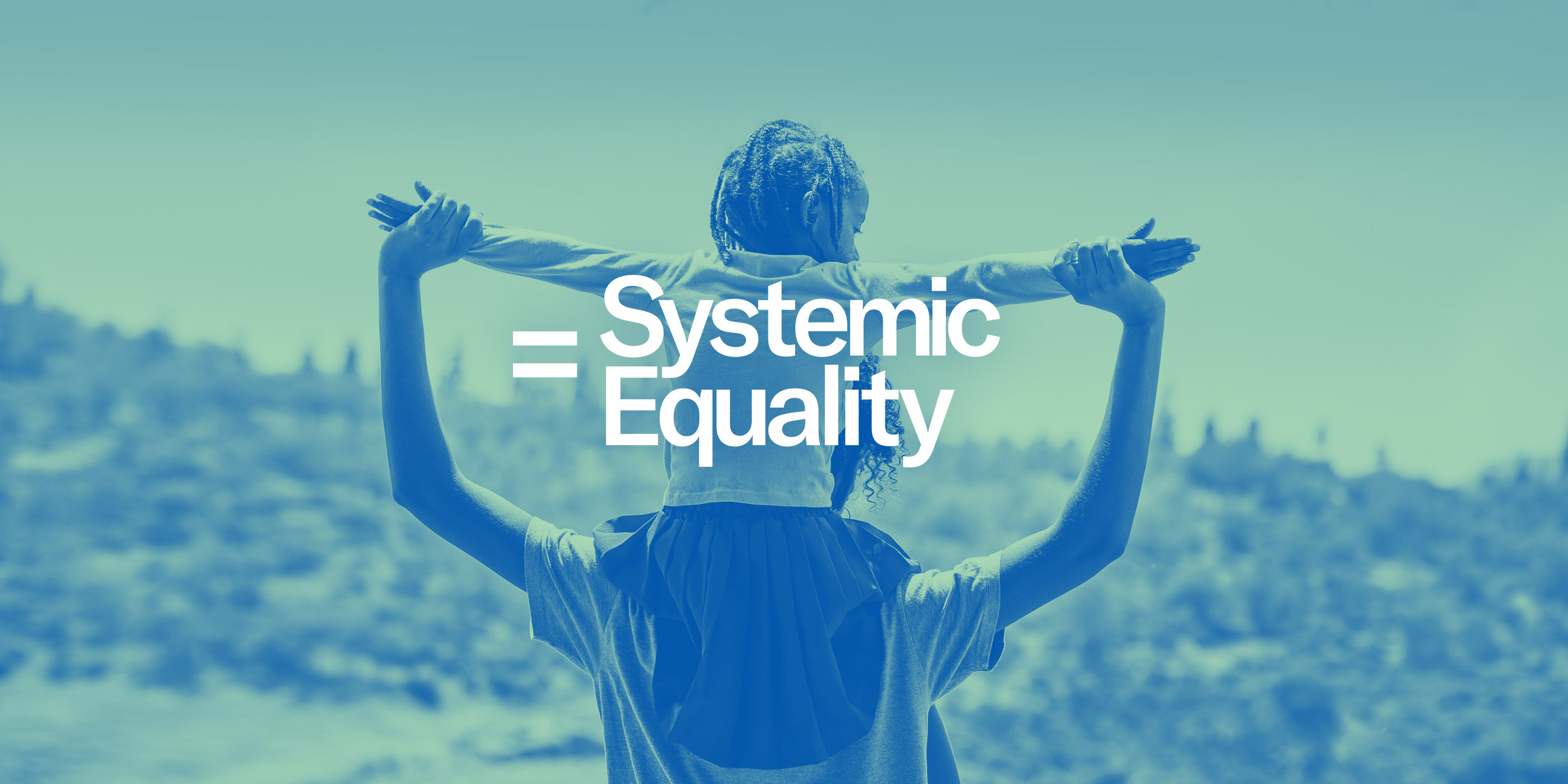
Systemic Equality: Equal Access, Better Futures
Systemic Equality is A Racial Justice Agenda
Since our nation’s founding, discriminatory policies and laws have created an unequal system in which Black communities have had their civil rights and liberties denied and have been systematically locked out of opportunities in education, housing, employment and more.
Through our Systemic Equality agenda, the ACLU will use nationwide litigation, advocacy, and public education to advance laws and policies rooted in racial equity and end discriminatory policies, laws, and practices that have an outsized impact on Black communities.
The ACLU will also continue to evolve our own culture, systems, and processes to drive progress toward our internal racial justice commitments, including by committing sustained recruitment and hiring efforts to recruit more diverse talent pools, developing initiatives to promote and retain Black leadership, engaging Black-owned and Black-led businesses, and more.
When we have full and equal access to education, jobs, housing, voting rights, and more, better futures are possible.
A Spotlight on Fair Housing
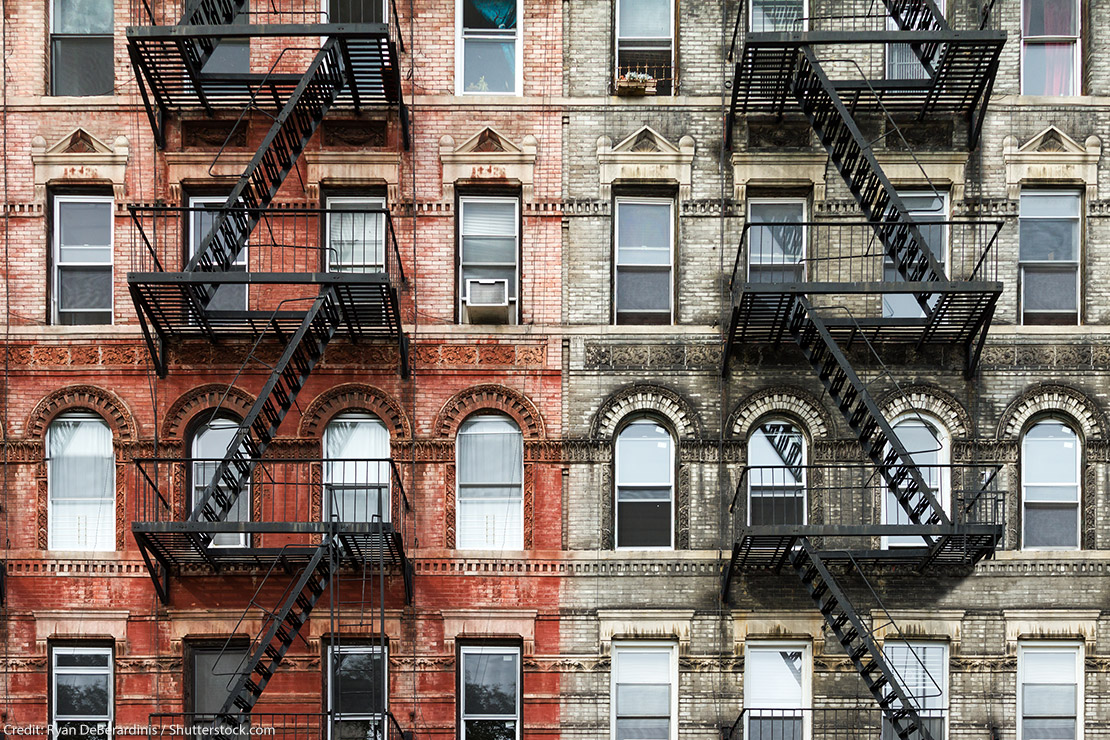
Why Fair Housing is Key to Systemic Equality
Here’s how discrimination continues to impact access to housing today, and why we’re fighting to ensure all people have equal access.

Apply for the ACLU-NBLSA Southern Legal Internship (SLIP) Program
SLIP interns will contribute to crucial campaigns in the issue areas that most affect Black and Brown communities.
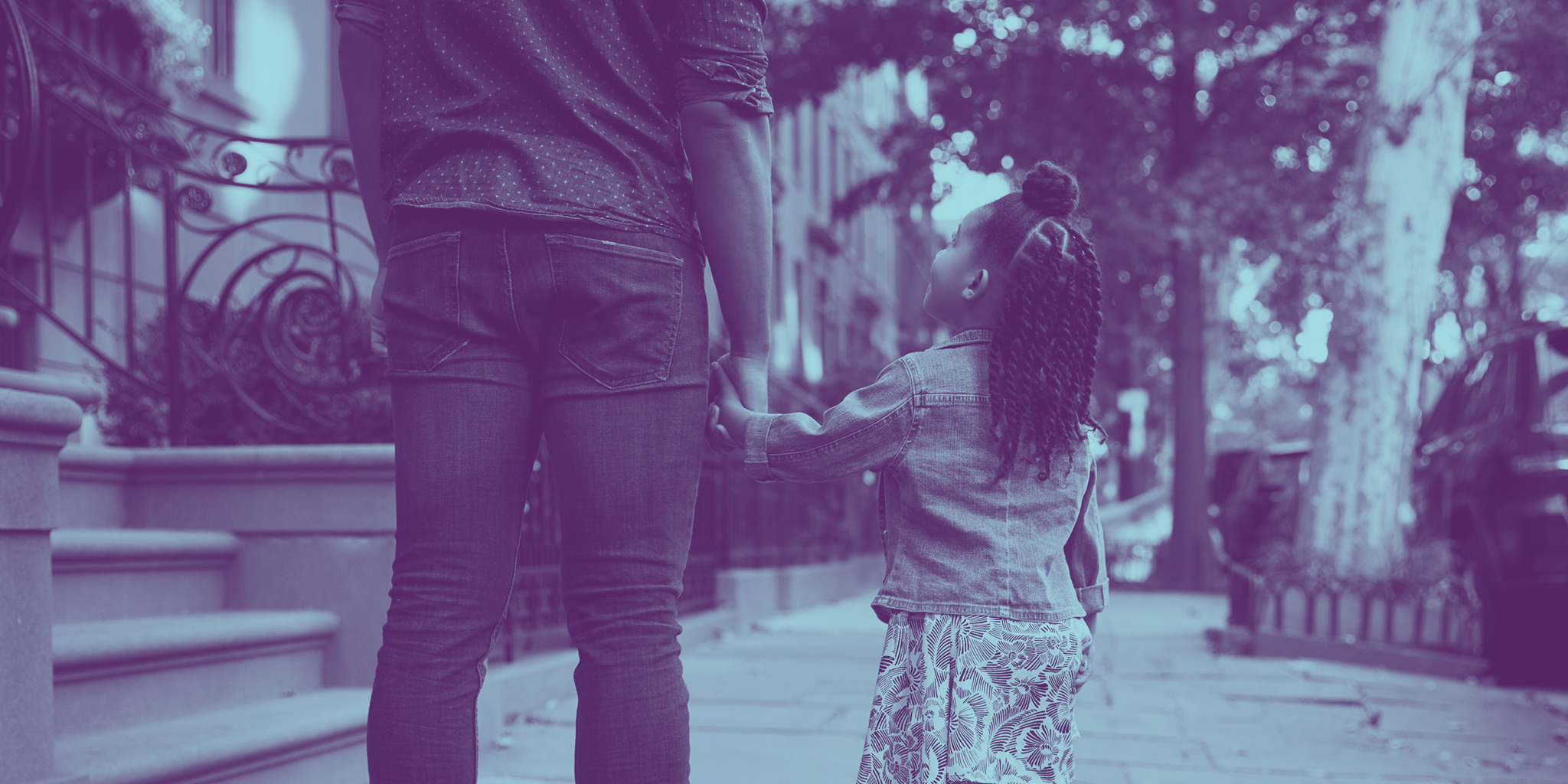
Fair Housing
Our goal is to expand access to stable, affordable housing.
Historic and ongoing segregation and discrimination has prevented marginalized groups — particularly Black communities — from accessing safe, affordable housing and home ownership.
Equal access to housing is a civil right. We must work to reduce mass evictions and barriers to housing opportunities that disproportionately impact Black women renters, and restore important housing protections to expand equal access to housing opportunities for everyone.
Everyone deserves equal access to safe and stable housing.
Our fair housing work includes:
- Challenging Mass Evictions and Barriers to Housing Opportunities: Black women and their families make up the demographic group most likely to face eviction in the United States, resulting in a myriad of harms and reinforcing segregation. Our multi-part campaign includes securing the right to counsel in eviction cases, prohibiting the consideration of prior eviction records in tenant screening, and more.
- Advocating for the Right to Representation: We are engaged in right to representation campaigns in Delaware and New Jersey to ensure all people facing eviction have the ability to assert their rights in court.
Historic and ongoing segregation and discrimination has prevented marginalized groups — particularly Black communities — from accessing safe, affordable housing and home ownership.
Equal access to housing is a civil right. We must work to reduce mass evictions and barriers to housing opportunities that disproportionately impact Black women renters, and restore important housing protections to expand equal access to housing opportunities for everyone.
Everyone deserves equal access to safe and stable housing.
Our fair housing work includes:
- Challenging Mass Evictions and Barriers to Housing Opportunities: Black women and their families make up the demographic group most likely to face eviction in the United States, resulting in a myriad of harms and reinforcing segregation. Our multi-part campaign includes securing the right to counsel in eviction cases, prohibiting the consideration of prior eviction records in tenant screening, and more.
- Advocating for the Right to Representation: We are engaged in right to representation campaigns in Delaware and New Jersey to ensure all people facing eviction have the ability to assert their rights in court.

Voting Rights
Our goal is to expand voting access for and build the political power of Black communities.
Black people and communities of color, in particular, have faced numerous obstacles to meaningful participation in the political process, including the redistricting process. The Voting Rights Act of 1965 prohibits the drawing of district lines that dilute the voting strength of communities of color. When Black people and communities of color are minimized through the redistricting process, they are not adequately represented in our democracy, perpetuating the systemic inequality many voters of colors already face.
Redistricting plans should fairly reflect the political strength of communities of color. As data from the last Census confirms, nearly all of the country’s growth over the past decade is attributable to the growth in our nation’s communities of color. Fair maps and voting policies must adequately reflect that reality.
The right to vote should be equally accessible to everyone.
Our voting rights work includes:
- Equal and Fair Political Representation: As part of our ongoing work to ensure legislatures reflect their constituencies and address the longstanding underrepresentation and disempowerment of Black communities, we will advocate for fair voting district maps in six priority states in the South to obtain more equal representation for Black voters.
Black people and communities of color, in particular, have faced numerous obstacles to meaningful participation in the political process, including the redistricting process. The Voting Rights Act of 1965 prohibits the drawing of district lines that dilute the voting strength of communities of color. When Black people and communities of color are minimized through the redistricting process, they are not adequately represented in our democracy, perpetuating the systemic inequality many voters of colors already face.
Redistricting plans should fairly reflect the political strength of communities of color. As data from the last Census confirms, nearly all of the country’s growth over the past decade is attributable to the growth in our nation’s communities of color. Fair maps and voting policies must adequately reflect that reality.
The right to vote should be equally accessible to everyone.
Our voting rights work includes:
- Equal and Fair Political Representation: As part of our ongoing work to ensure legislatures reflect their constituencies and address the longstanding underrepresentation and disempowerment of Black communities, we will advocate for fair voting district maps in six priority states in the South to obtain more equal representation for Black voters.

Criminal Justice
Our goal is to improve public safety by investing in Black communities instead of punishment.
Investing in punishment while undermining what we need for equal and thriving communities has resulted in overcriminalization and the unjust and unequal treatment of our communities — especially Black communities.
We improve public safety by addressing root causes of crime, such as poverty and lack of opportunity, while also focusing on strengthening communities through investments in promising solutions. These include increasing access to affordable housing, jobs, education, health care, and mental health and substance use services in our communities. At the same time, we must work to reduce the number of people incarcerated, surveilled, and criminalized by law enforcement and in the courts. We must challenge dehumanizing conditions in jails and prisons and ensure that people returning to our communities are equipped for success. We must challenge cruel, extreme, and discriminatory punishments such as the death penalty and life without parole. We must work to erect meaningful constitutional guardrails on law enforcement — including jail and prison administrators.
We have the power to choose and to invest in real solutions that increase equality, justice, and safety for all of us.
Our criminal justice work includes:
- Challenging Policing: Part of a larger campaign to reimagine community safety that uses litigation and integrated advocacy to challenge racially-biased policing practices and advance community-based and non-punitive approaches to public safety.
- Shrinking the Geography of Mass Incarceration: An integrated effort, our litigation and advocacy will focus on developing legal challenges to stop funding for the expansion or construction of prisons, jails, and detention centers.
- Ending Racially Discriminatory Jury Selection in the Death Penalty: The jury selection process in death penalty trials, known as “death qualification,” removes otherwise qualified jurors from serving in capital trials based on their opposition to the death penalty. The process discriminates against Black jurors, who are disproportionately opposed to the death penalty. The history of the death penalty in America is inextricably tied to the history of lynching, and the opposition to the death penalty within the Black community is rooted in that history. This disenfranchisement from jury service is a fresh injustice compounding the injustice of racial terror and violence.
Investing in punishment while undermining what we need for equal and thriving communities has resulted in overcriminalization and the unjust and unequal treatment of our communities — especially Black communities.
We improve public safety by addressing root causes of crime, such as poverty and lack of opportunity, while also focusing on strengthening communities through investments in promising solutions. These include increasing access to affordable housing, jobs, education, health care, and mental health and substance use services in our communities. At the same time, we must work to reduce the number of people incarcerated, surveilled, and criminalized by law enforcement and in the courts. We must challenge dehumanizing conditions in jails and prisons and ensure that people returning to our communities are equipped for success. We must challenge cruel, extreme, and discriminatory punishments such as the death penalty and life without parole. We must work to erect meaningful constitutional guardrails on law enforcement — including jail and prison administrators.
We have the power to choose and to invest in real solutions that increase equality, justice, and safety for all of us.
Our criminal justice work includes:
- Challenging Policing: Part of a larger campaign to reimagine community safety that uses litigation and integrated advocacy to challenge racially-biased policing practices and advance community-based and non-punitive approaches to public safety.
- Shrinking the Geography of Mass Incarceration: An integrated effort, our litigation and advocacy will focus on developing legal challenges to stop funding for the expansion or construction of prisons, jails, and detention centers.
- Ending Racially Discriminatory Jury Selection in the Death Penalty: The jury selection process in death penalty trials, known as “death qualification,” removes otherwise qualified jurors from serving in capital trials based on their opposition to the death penalty. The process discriminates against Black jurors, who are disproportionately opposed to the death penalty. The history of the death penalty in America is inextricably tied to the history of lynching, and the opposition to the death penalty within the Black community is rooted in that history. This disenfranchisement from jury service is a fresh injustice compounding the injustice of racial terror and violence.

Economic Justice
Our goal is to reduce the racial wealth gap.
Systemic inequities and barriers keep people — particularly people of color — from accessing the mainstays of economic life; including education, employment, and homeownership; resulting in racial disparities in wealth and income. These disparities result from a combination of ongoing discrimination, structural inequality, and biases across our institutions, and emerge in new forms of technology, including through artificial intelligence, that influence nearly every facet of life.
Through litigation and advocacy, we aim to remedy deeply entrenched sources of inequality and ensure that access to opportunity and the ability to build wealth is available to all.
All people should have an equal opportunity to earn a living, find a home, and get an education.
Our economic justice work includes:
- Exposing Discriminatory Hiring and Lending Tech: Leveraging research and integrated advocacy, we will promote a more equitable approach to AI policy and expose and stop the use of biased, discriminatory hiring and lending technologies that perpetuate hiring and employment discrimination.
Systemic inequities and barriers keep people — particularly people of color — from accessing the mainstays of economic life; including education, employment, and homeownership; resulting in racial disparities in wealth and income. These disparities result from a combination of ongoing discrimination, structural inequality, and biases across our institutions, and emerge in new forms of technology, including through artificial intelligence, that influence nearly every facet of life.
Through litigation and advocacy, we aim to remedy deeply entrenched sources of inequality and ensure that access to opportunity and the ability to build wealth is available to all.
All people should have an equal opportunity to earn a living, find a home, and get an education.
Our economic justice work includes:
- Exposing Discriminatory Hiring and Lending Tech: Leveraging research and integrated advocacy, we will promote a more equitable approach to AI policy and expose and stop the use of biased, discriminatory hiring and lending technologies that perpetuate hiring and employment discrimination.

Education Equity
Our goal is to ensure all students have equal access to high quality education and safe schools.
All students have a right to an equal education, but students of color (particularly Black students), students with disabilities, and low-income youth have historically been marginalized, criminalized, and under-resourced by the public school system.
We will challenge unconstitutional disciplinary policies that disparately target Black students and infringe on their right to a safe learning environment. We will also support race conscious admission policies to increase access to underrepresented groups who face systemic barriers to higher education.
All students deserve equal access to a high quality education, a safe learning environment, and a diverse student body that enriches the educational experiences of all students.
Our education equity work includes:
- Defending Race Conscious Admissions: The American Civil Liberties Union, the ACLU of Massachusetts, and the ACLU of North Carolina filed an amicus brief urging the Supreme Court to uphold universities’ ability to consider race in college admissions.
All students have a right to an equal education, but students of color (particularly Black students), students with disabilities, and low-income youth have historically been marginalized, criminalized, and under-resourced by the public school system.
We will challenge unconstitutional disciplinary policies that disparately target Black students and infringe on their right to a safe learning environment. We will also support race conscious admission policies to increase access to underrepresented groups who face systemic barriers to higher education.
All students deserve equal access to a high quality education, a safe learning environment, and a diverse student body that enriches the educational experiences of all students.
Our education equity work includes:
- Defending Race Conscious Admissions: The American Civil Liberties Union, the ACLU of Massachusetts, and the ACLU of North Carolina filed an amicus brief urging the Supreme Court to uphold universities’ ability to consider race in college admissions.
How Can We Achieve Systemic Equality?
ACLU Deputy Legal Director Yasmin Cader explains what needs to be done in the fight against systemic racial discrimination in order to create a world in which everyone’s civil rights and liberties are recognized.
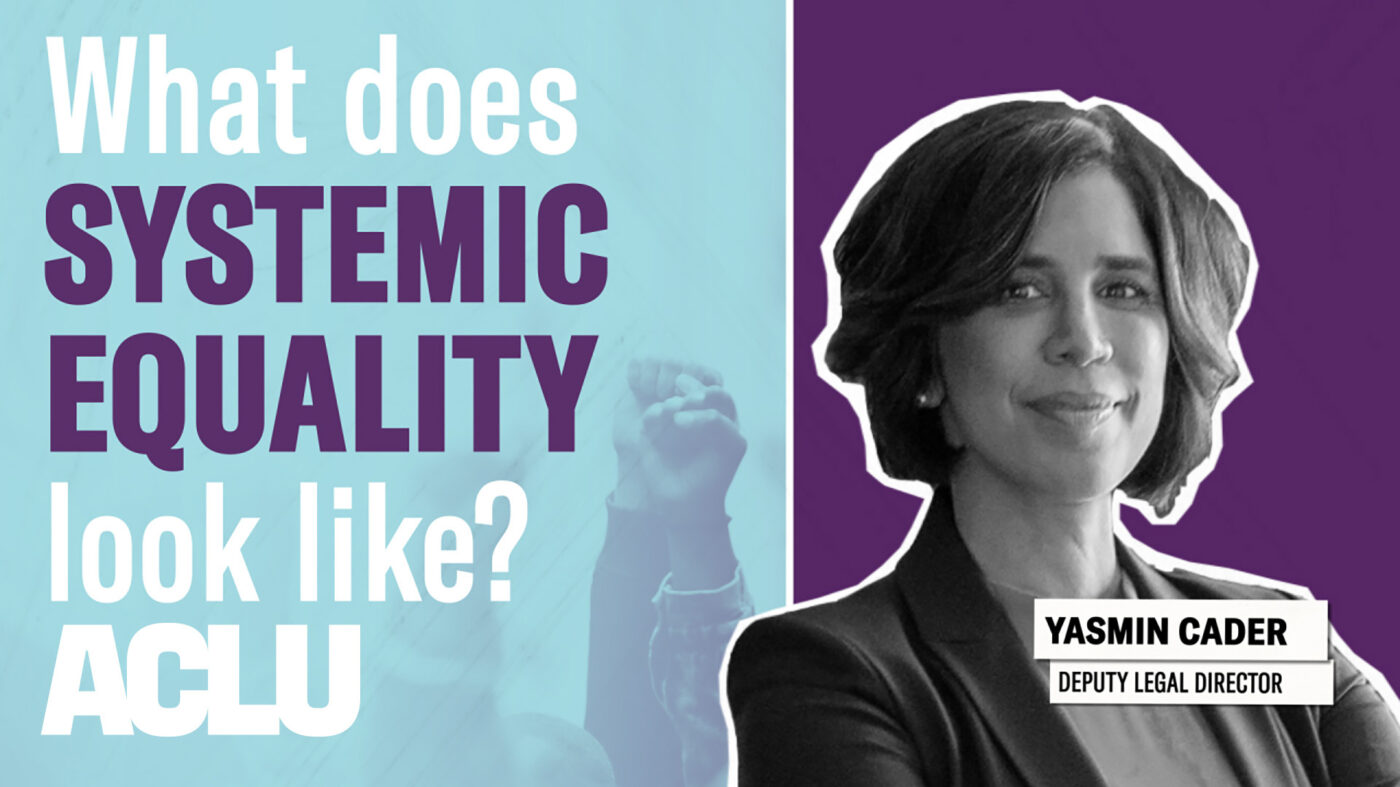
Learn More About the Issues on This Page
Related Content
-
News & CommentaryJan 2026
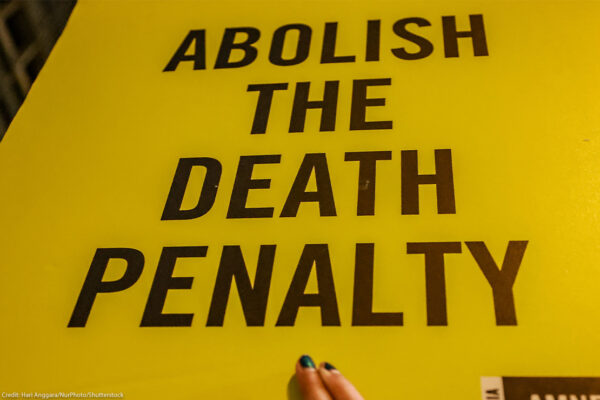
Capital Punishment
Executions Spiked In 2025, But The Death Penalty Is Still Losing Ground. Explore News & Commentary.Executions Spiked in 2025, but the Death Penalty Is Still Losing Ground
As executions surged to their highest level in years, public support, jury verdicts, and new death sentences continued a historic decline—exposing a punishment sustained by political power, not public will.By: Cassandra Stubbs -
Press ReleaseDec 2025

Capital Punishment
Aclu Condemns Florida Supreme Court Decision Upholding Non-unanimous Capital Juries. Explore Press Release.ACLU Condemns Florida Supreme Court Decision Upholding Non-Unanimous Capital Juries
TALLAHASSEE – The Florida Supreme Court upheld Florida’s law allowing non-unanimous juries to sentence people to death upon a vote of 8-4, meaning a person can be sentenced to death in the state even if a third of the jury votes for life. The court’s decision came in a pair of cases, Jackson v. Florida and Hunt v. Florida, brought by two men sentenced to death by non-unanimous juries. The American Civil Liberties Union represents Mr. Michael Jackson, who was sentenced to death in 2007, despite 4 jurors voting for a life sentence. In 2016, the Florida Supreme Court declared non-unanimous sentencings unconstitutional after a Supreme Court decision ruled that Florida’s capital sentencing statute violated the Sixth Amendment. For years, Mr. Jackson waited to be re-sentenced under the law of unanimity, but weeks before his long-awaited retrial, the Florida legislature reinstated non-unanimous juries, and he was sentenced to death by another 8-4 jury. “Allowing a death sentence by a divided jury betrays the founders’ vision of the jury as a cornerstone of democracy and a protection against government overreach,” said Megan Byrne, senior staff attorney at the ACLU’s Capital Punishment Project. “Non-unanimous juries increase the risk of wrongful convictions and can operate to silence the voices of jurors of color. Florida’s high court has made clear that the state values speed and finality over accuracy and justice. We will be asking the Supreme Court to review this decision and reaffirm that the Constitution provides the right to a fair trial and a unanimous jury when life is at stake.” Florida is one of only two states to allow divided juries to sentence people to death and has the most extreme law in the country. As Justice Labarga of the Florida Supreme Court acknowledged in his separate opinion, “the 8-4 threshold renders Florida the absolute outlier among states that impose the death penalty. Florida now has the lowest standard in the nation, requiring the fewest number of jurors to recommend the death penalty.” Florida legislators enacted the non-unanimity law in 2023 despite a recent U.S. Supreme Court decision holding that unanimity is required for guilty verdicts in all cases where a defendant is charged with a serious offense. In that decision, the Supreme Court called out the racist origins of non-unanimity laws which states specifically designed to silence the voices of Black jurors. Non-unanimous sentencing schemes also heighten the risk of executing the innocent. Florida has had 30 exonerations from death row — the most capital exonerations of any state in the country. Of those, the vast majority (19) of exonerees were sentenced by non-unanimous juries. “More than 200 innocent people have been exonerated from death rows across America since 1976,” said Daniel Tilley, legal director of the ACLU of Florida. “Non-unanimous juries only amplify the risk that innocent people will be sentenced to death. Dissenting jurors often raise concerns about credibility, evidence, or mitigation, and non-unanimity allows someone to be sentenced to death despite unresolved doubt. When the stakes are life or death, we cannot afford to settle for anything less than what the Constitution promises.” Michael Hunt, the second man challenging non-unanimity, was arrested and charged with capital murder in 2018, when Florida law required the jury to be unanimous in any death recommendation. His trial was delayed until 2023, by which point the Florida legislature and courts had walked back the protection of unanimity. The jury convicted him unanimously, but voted only 10-2 for his death sentence. Had the jury issued this decision only six months earlier, Florida law would have required a life sentence. Read more about Mr. Jackson’s case here: https://www.aclu.org/cases/michael-jackson-v-state-of-floridaCourt Case: Michael Jackson v. State of FloridaAffiliate: Florida -
News & CommentaryNov 2025

Criminal Law Reform
+2 Issues
Gary Tyler Spent 42 Years In Prison For A Crime He Didn't Commit. Racism Put Him There.. Explore News & Commentary.Gary Tyler Spent 42 Years in Prison for a Crime He Didn't Commit. Racism Put Him There.
Tyler’s case shows how bias, fear, and discrimination drive wrongful convictions — and why confronting racial injustice in the legal system remains urgent today.By: Lora Strum -
Press ReleaseNov 2025

Capital Punishment
Racial Justice
New Aclu Report Exposes Systemic Failures Behind Wrongful Death Penalty Convictions. Explore Press Release.New ACLU Report Exposes Systemic Failures Behind Wrongful Death Penalty Convictions
NEW YORK — The American Civil Liberties Union released Fatal Flaws: Innocence, Race and Wrongful Convictions today, a new report exposing how racism, human error, and systemic failures have made wrongful convictions, and particularly the wrongful conviction of Black men, an inevitable consequence of the death penalty system. Fatal Flaws underscores the devastating and irrevocable human cost of a flawed system – one that robs people of decades of life while waiting for an exoneration, or in the worst of cases – costs innocent life. Despite growing public opposition to the death penalty, there have been more executions this year than any year over the past decade, including of people who had compelling innocence claims. “Every wrongful conviction reveals not just individual failure, but the patterns of systemic injustice baked into the death penalty itself,” said Megan Byrne, senior staff attorney at the ACLU’s Capital Punishment Project. “The death penalty was built on a foundation of racism, and those roots still shape how it works today. When you combine that history with human bias and political pressure to reach convictions in high profile cases, it becomes clear why wrongful death sentences are not rare accidents, they’re the predictable result of a fundamentally flawed system that fails the accused and the community at large. The only way to prevent wrongful convictions is to end the death penalty once and for all.” Since the modern death penalty era began in 1973, at least 200 people have been exonerated from death row across the United States. At least 21 others who were likely innocent have already been executed. The report examines the factors that led to these wrongful convictions and highlights the human stories behind them, including Glynn Simmons, who spent 48 years wrongfully imprisoned, the longest known wrongful incarceration in U.S. history. Key findings in the report include: Official misconduct from police or prosecutors, including coercing witnesses, concealing exculpatory evidence, falsifying reports, or condoning perjury, is the single most common factor in wrongful death penalty convictions, and particularly for Black exonerees. The report highlights certain counties notorious for this type of misconduct. False testimony or perjury occurs in nearly 70 percent of wrongful death penalty cases, and it is the single most common factor for Black and Latine exonerees. Eyewitness misidentification has contributed to one in five wrongful death penalty convictions. Misidentifications are especially likely when the witness and suspect are of different races. Unreliable forensic evidence plays a role in roughly one in three exonerations. Many discredited forensic techniques like bite mark and hair analysis continue to be used in death penalty cases and lead to wrongful convictions. Racial bias in jury selection stacks the deck against defendants. Death qualification and racial bias that leads to the exclusion of Black jurors produce conviction-prone juries that do not represent the community. The report calls on state legislatures and executives repeal the death penalty, expand post-conviction relief and accountability, ensure fair and diverse juries, create meaningful remedies and reparative support for people who have been wrongfully convicted, and strengthen executive clemency and innocence review commissions. Fatal Flaws: Innocence, Race and Wrongful Convictions is the second volume of a multi-part series on the death penalty. The first volume, Fatal Flaws: Revealing the Racial and Religious Gerrymandering of the Capital Jury, exposes how the process of “death qualification” warps juries in capital trials. The full report can be found here: https://www.aclu.org/publications/fatal-flaws-innocence-race-and-wrongful-convictions